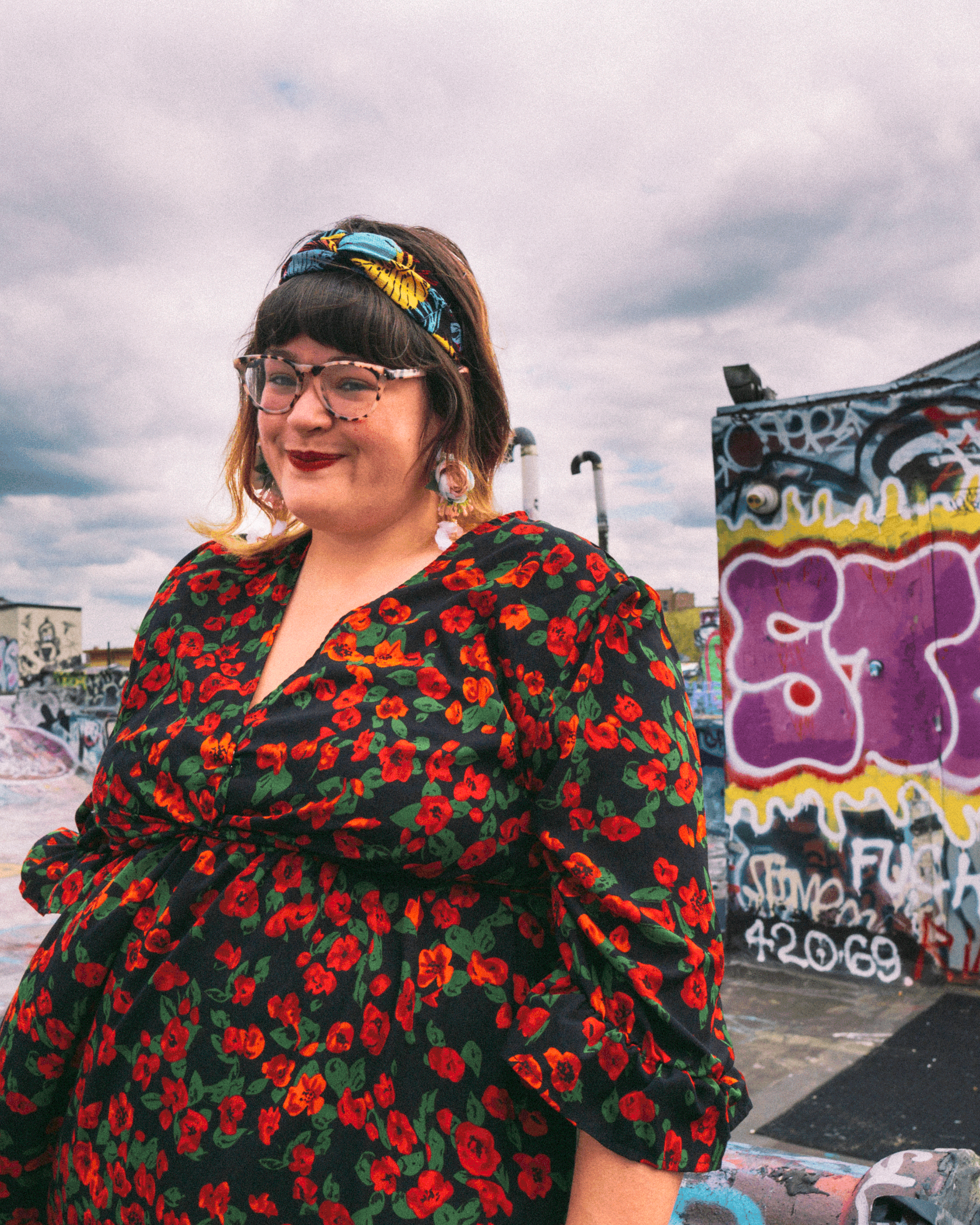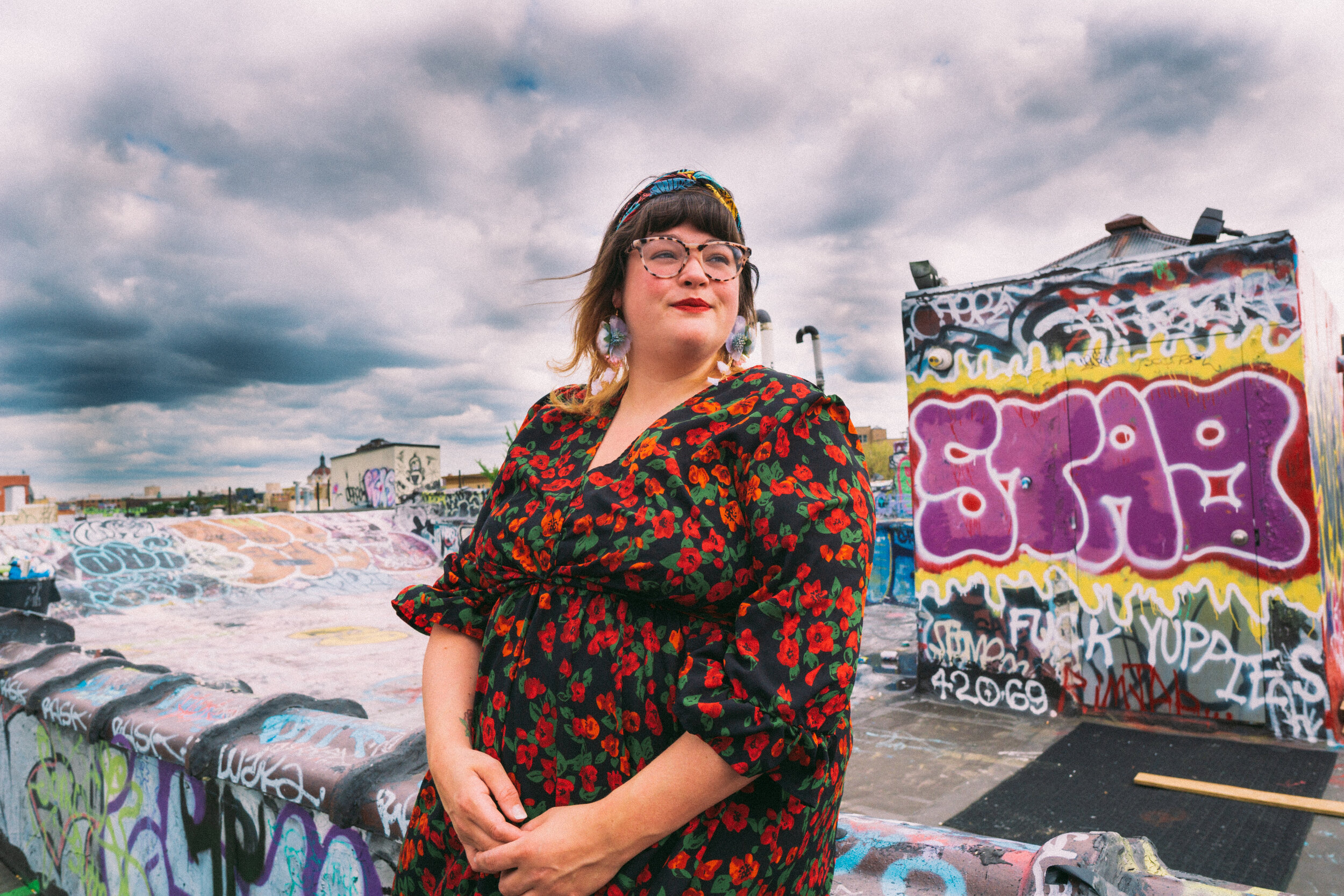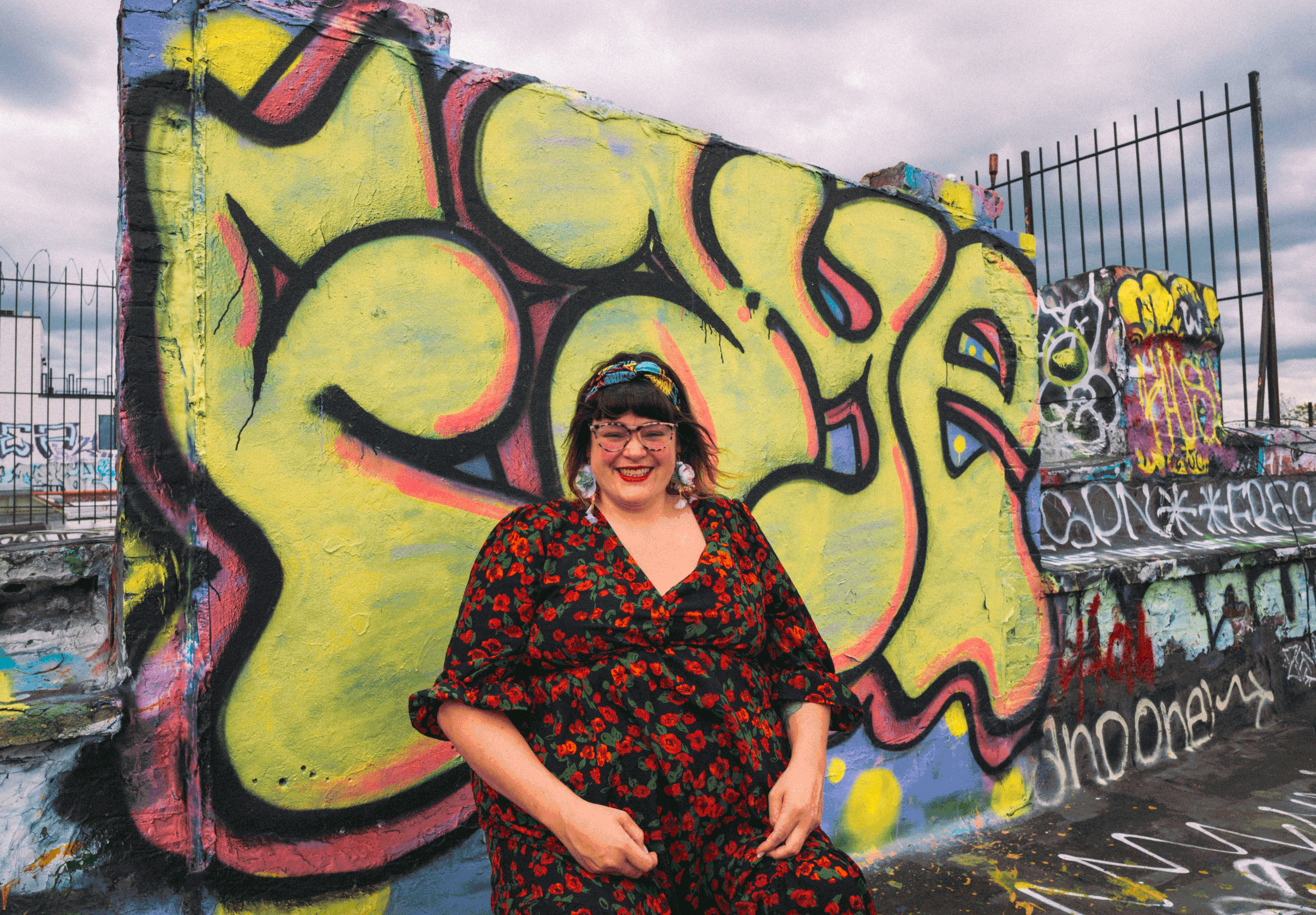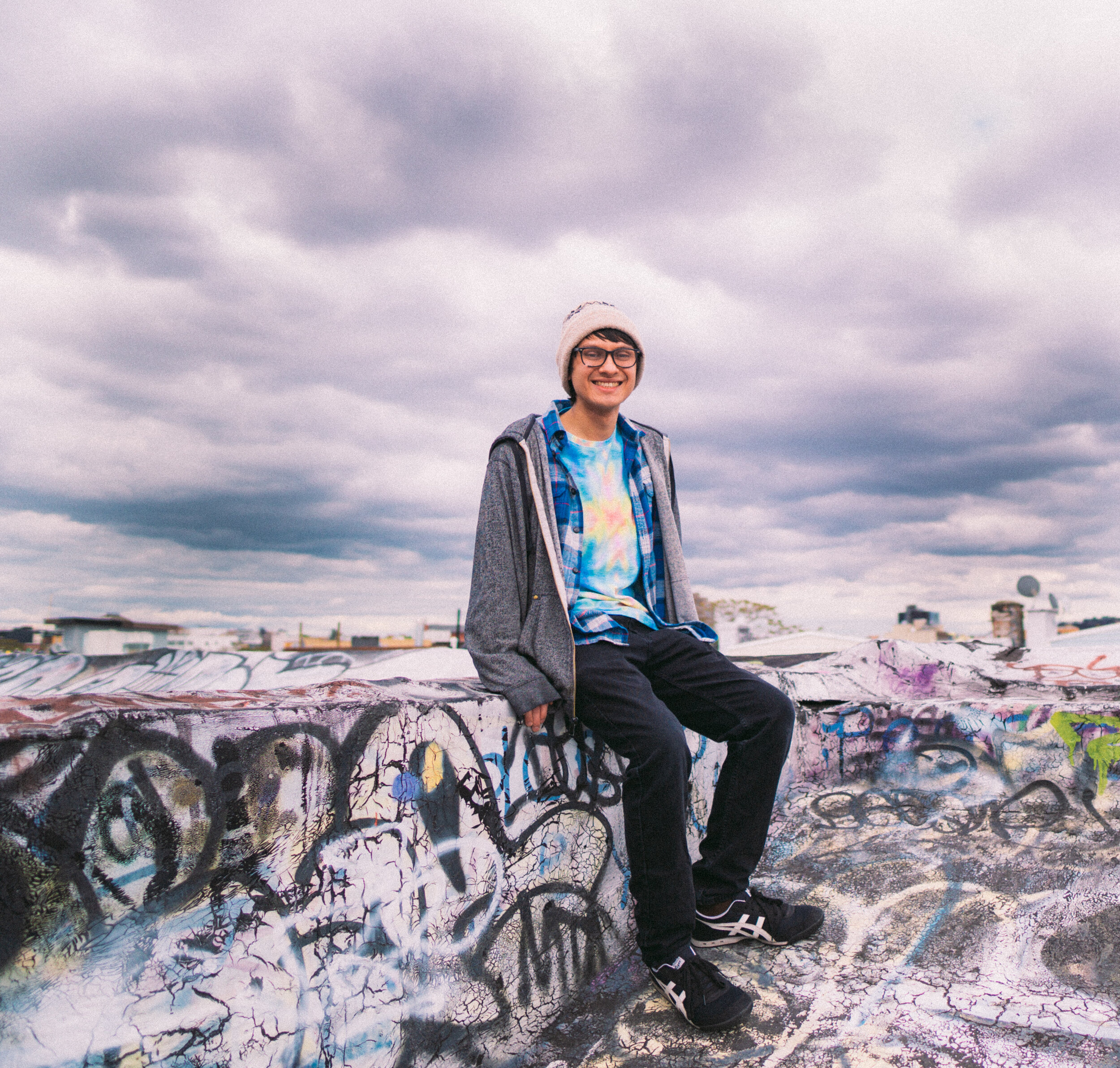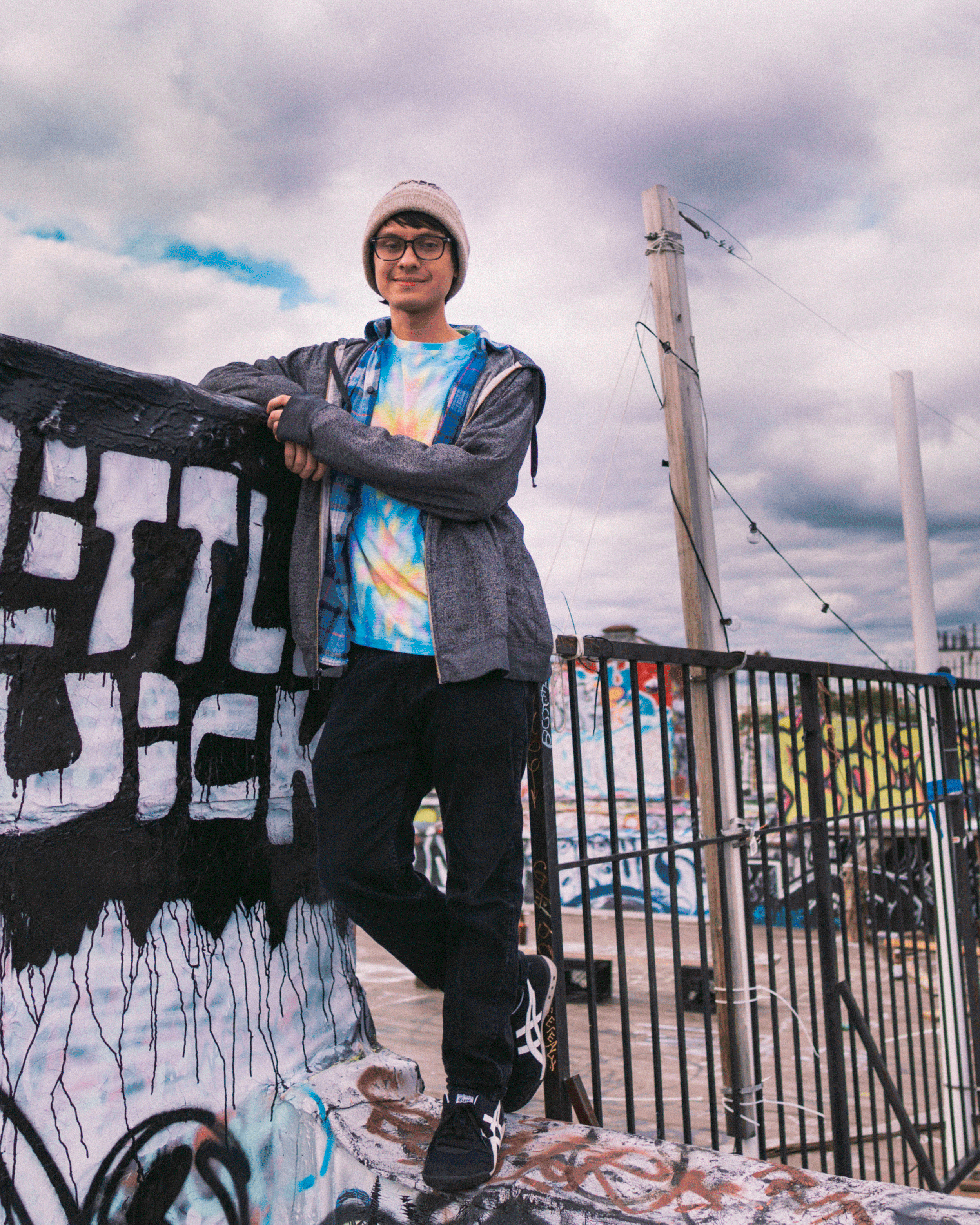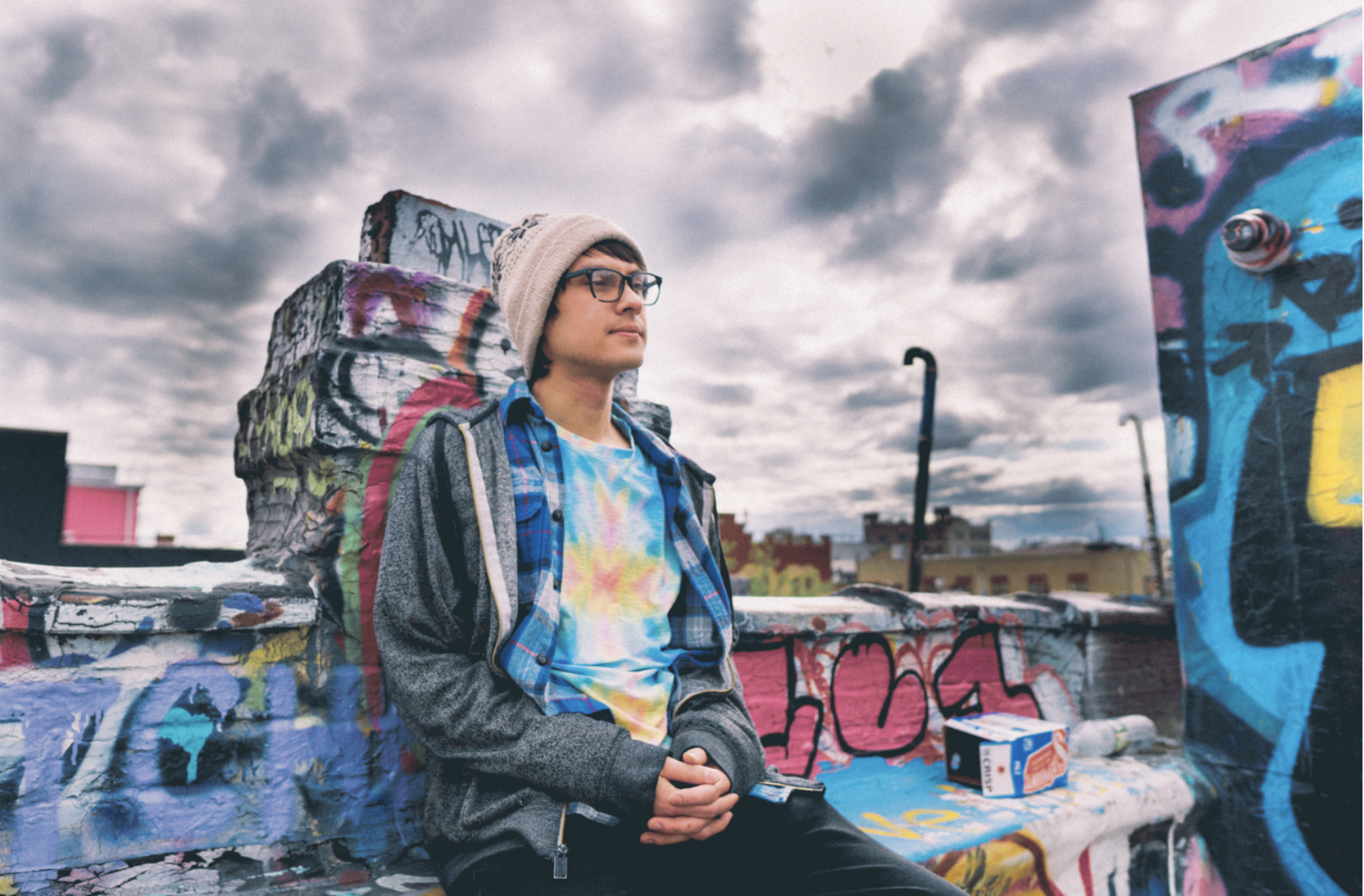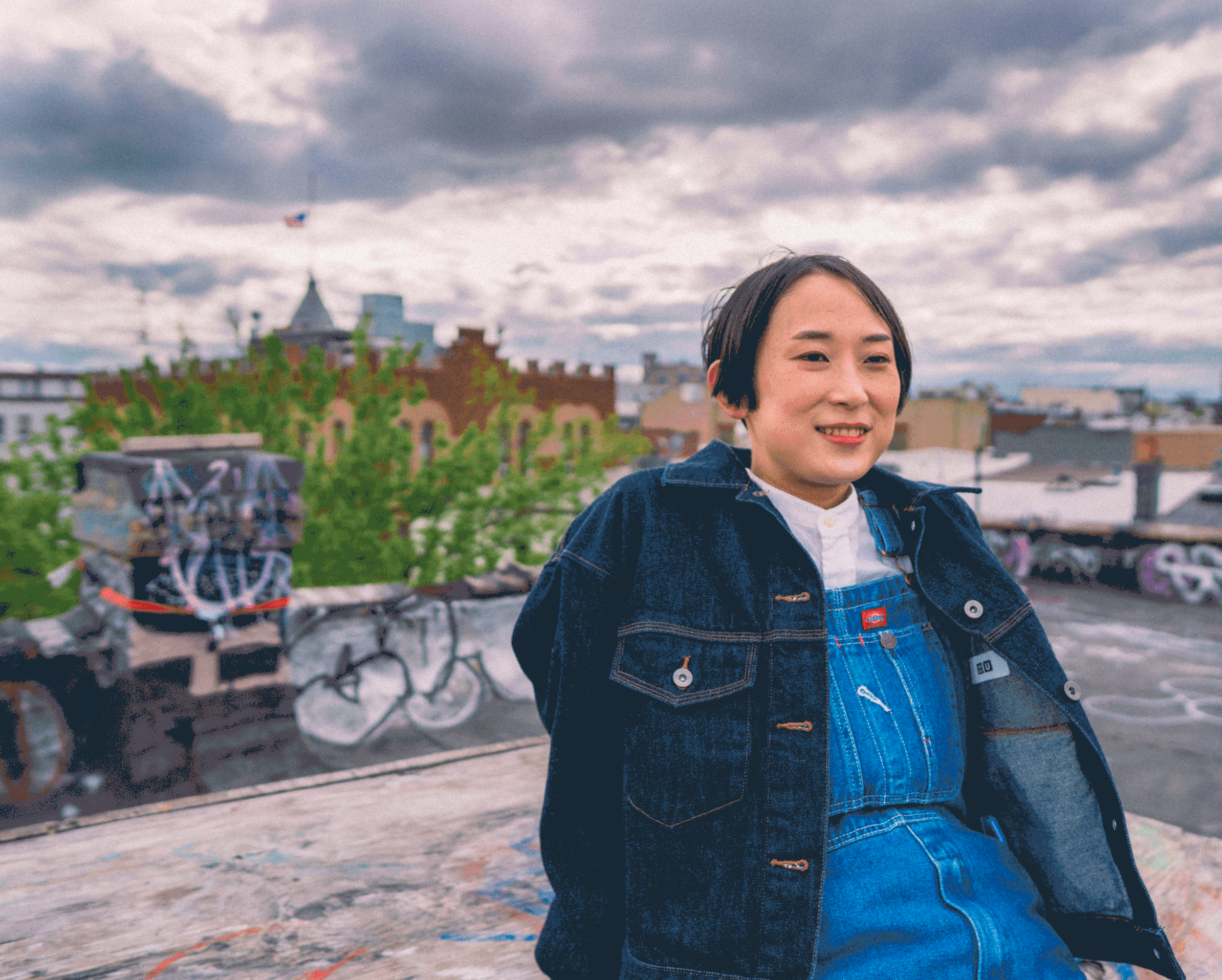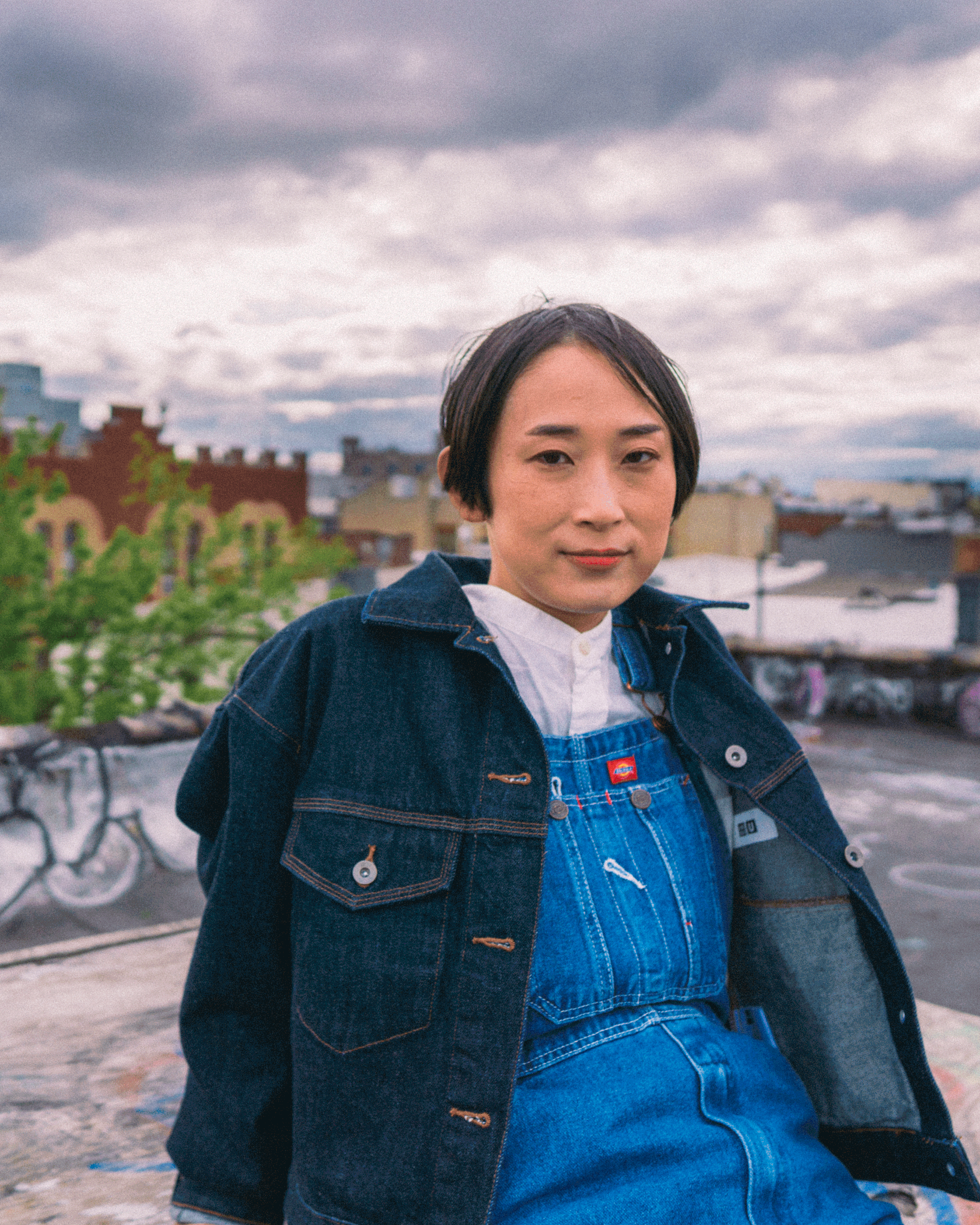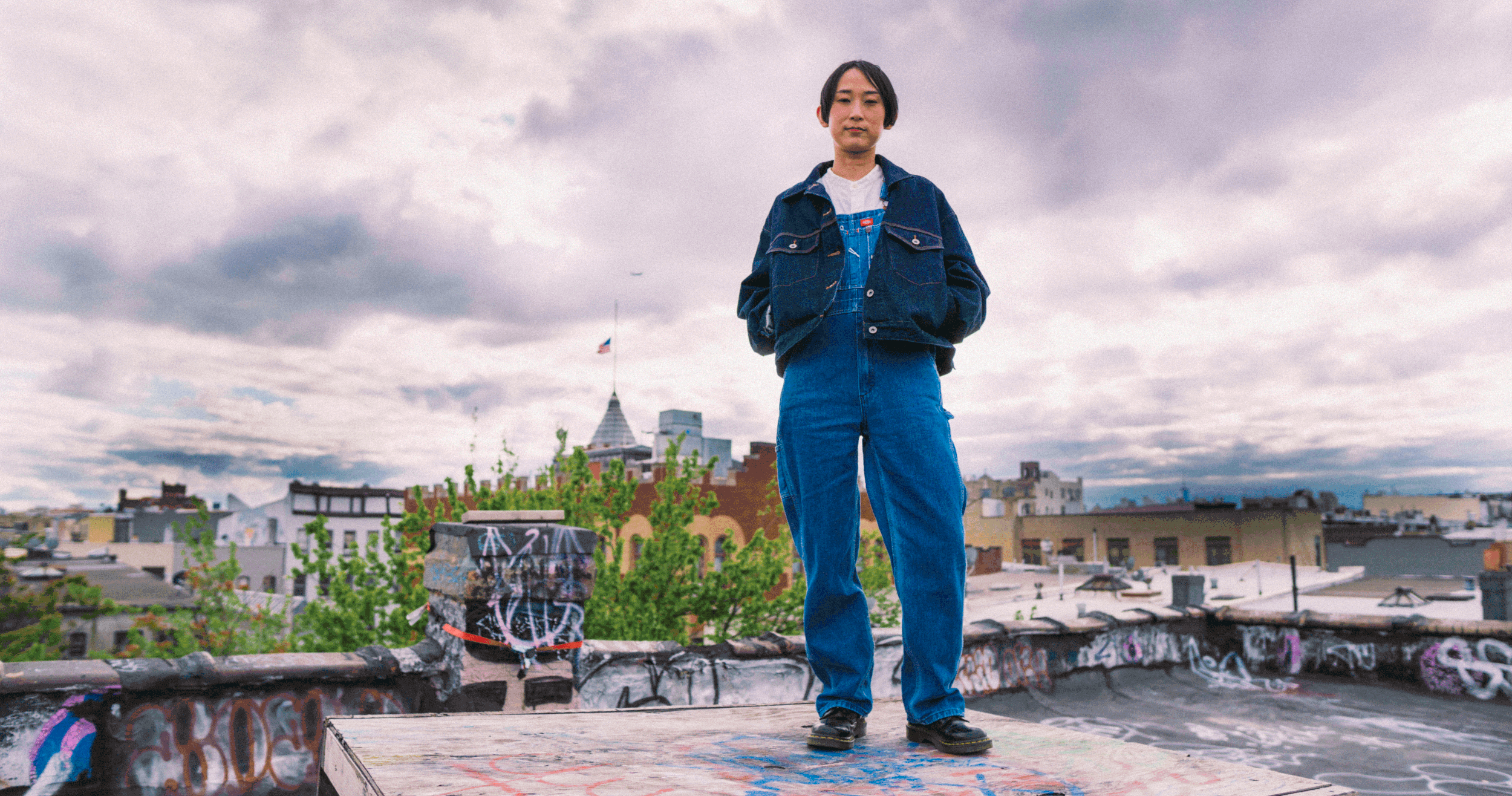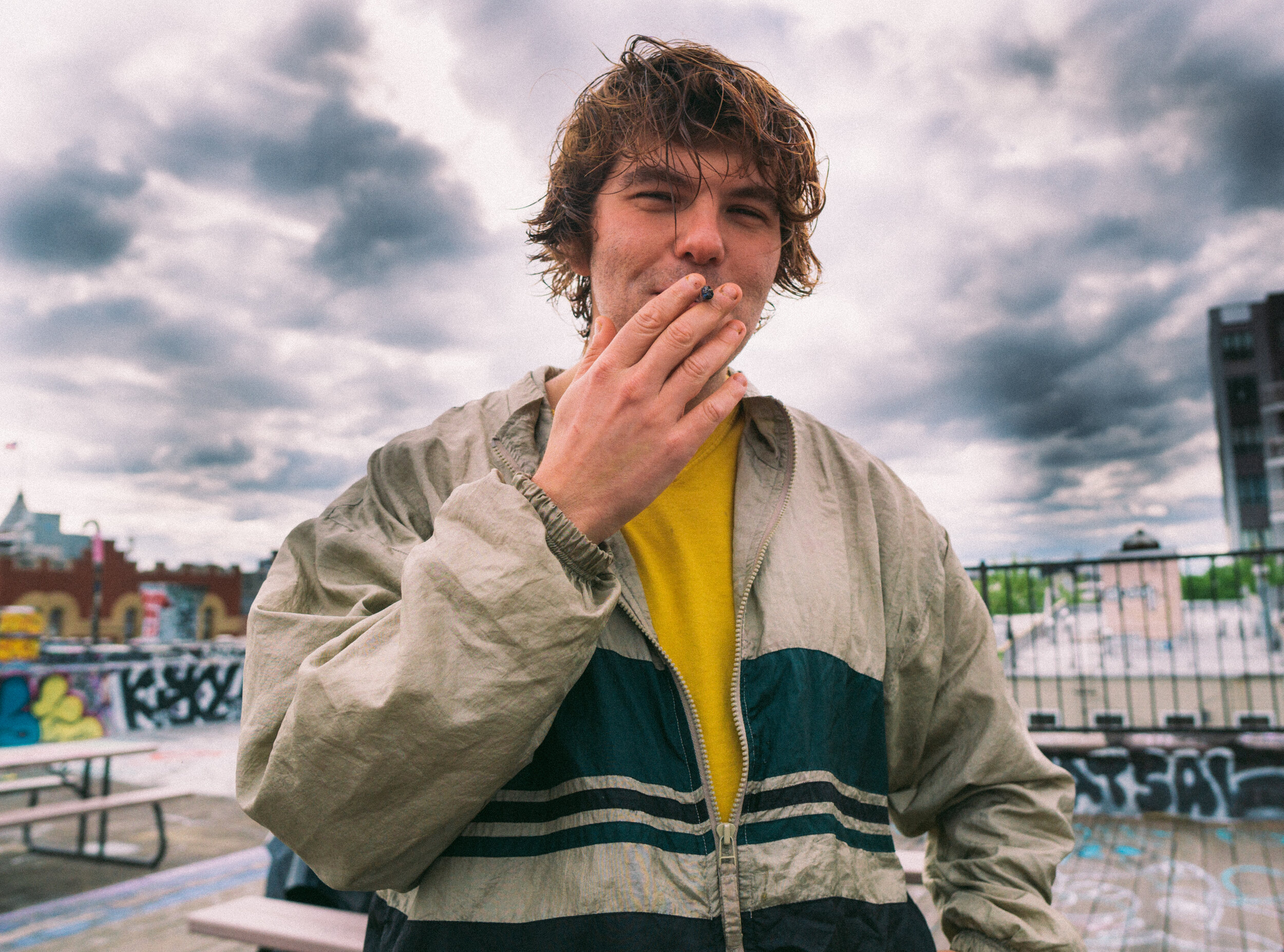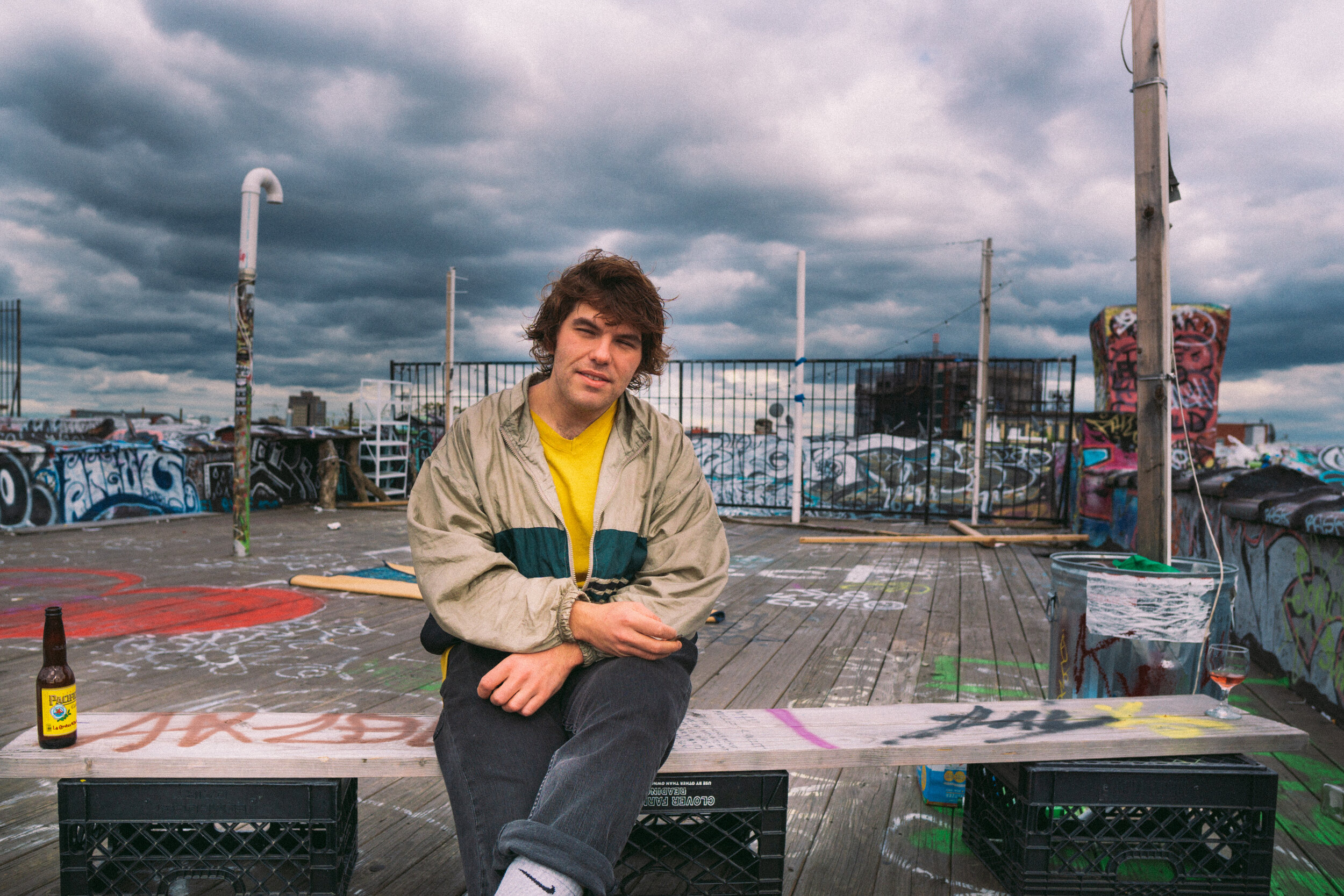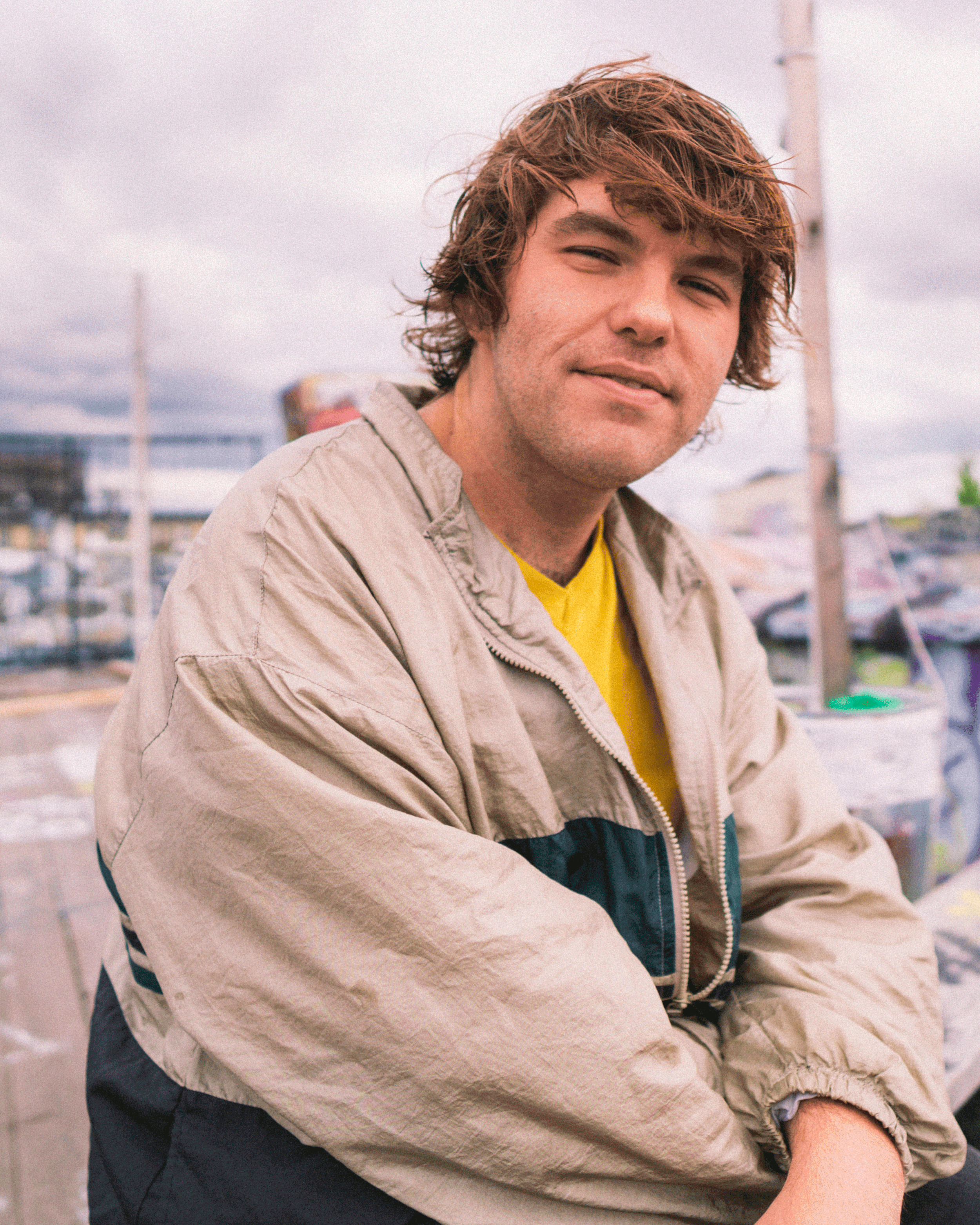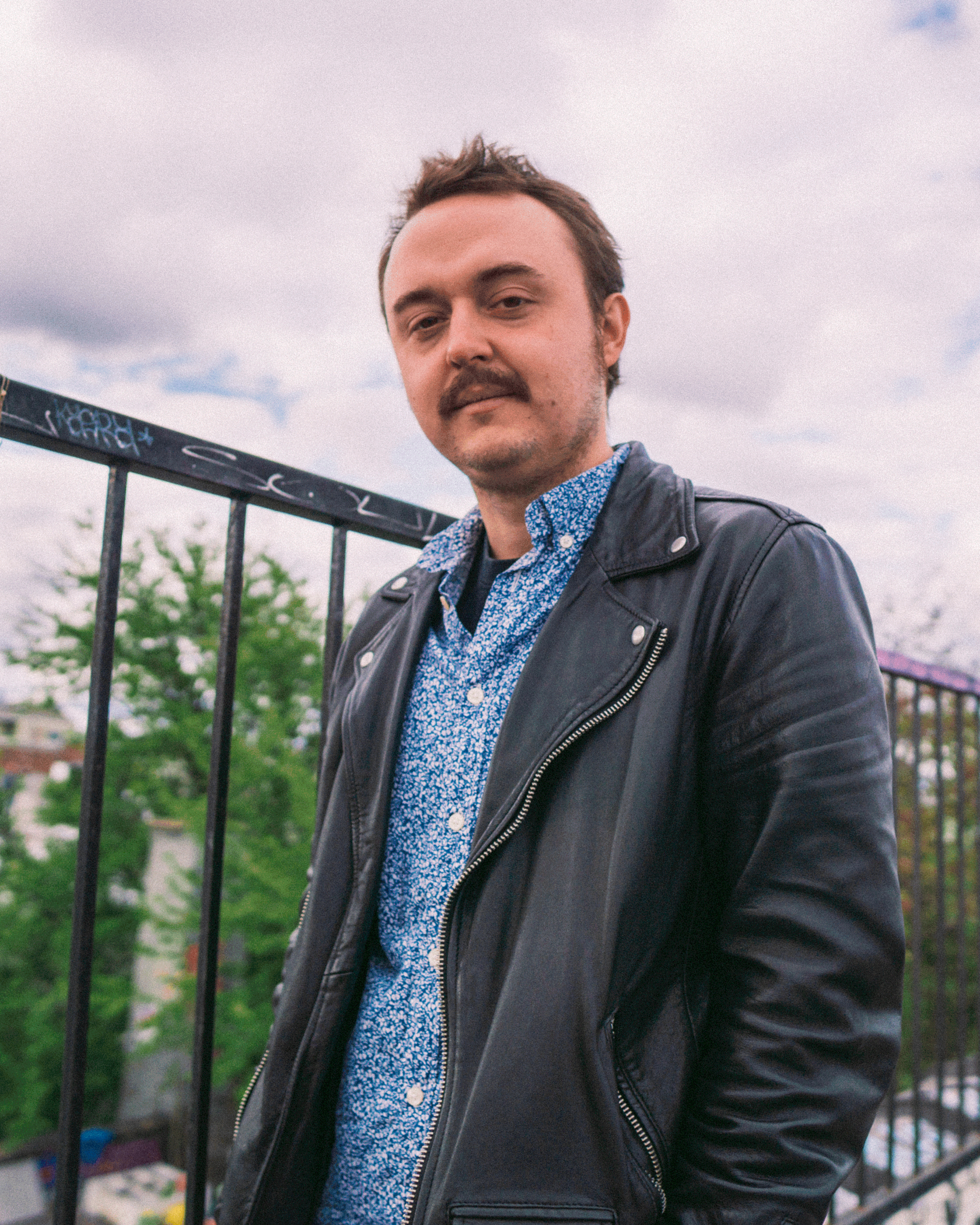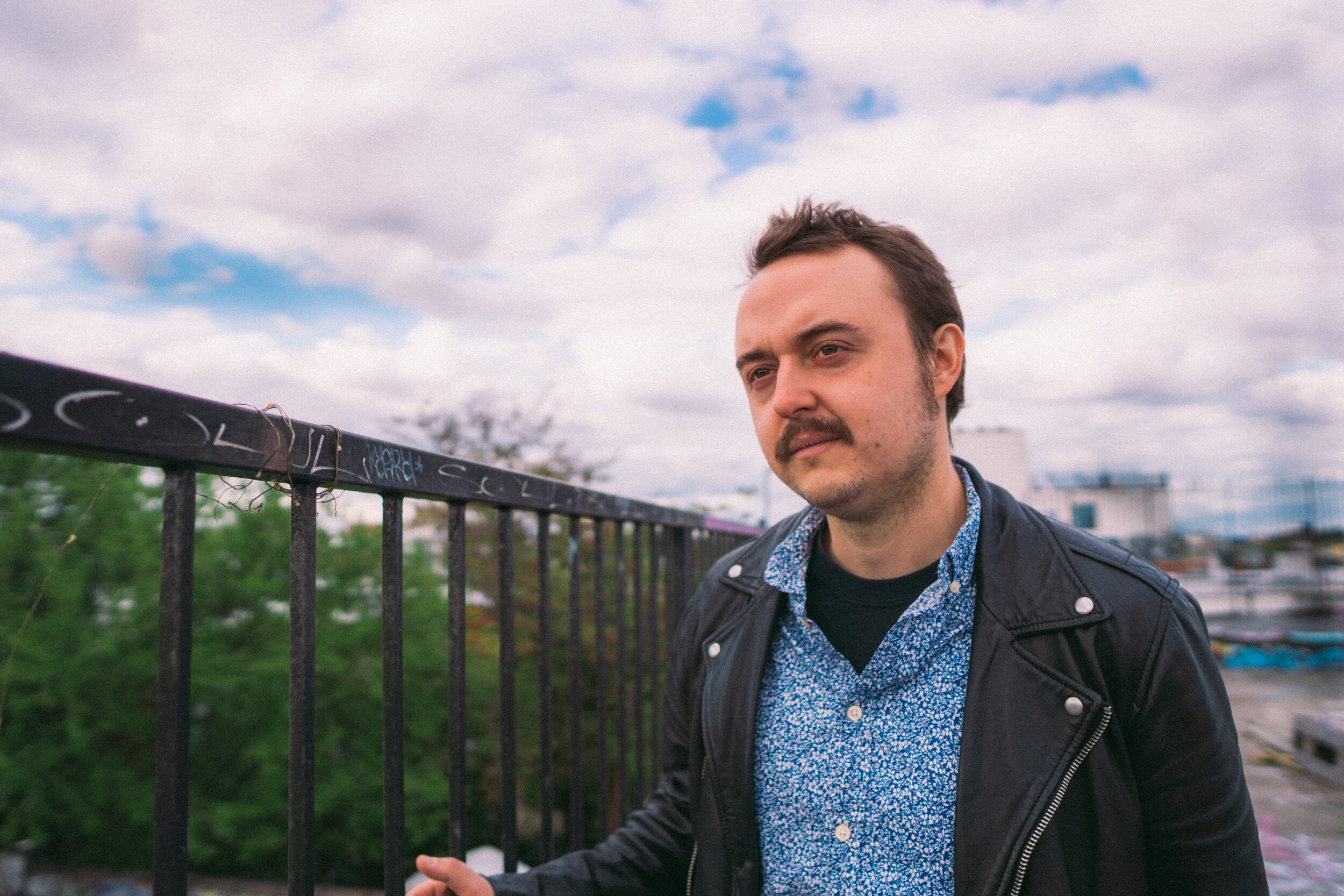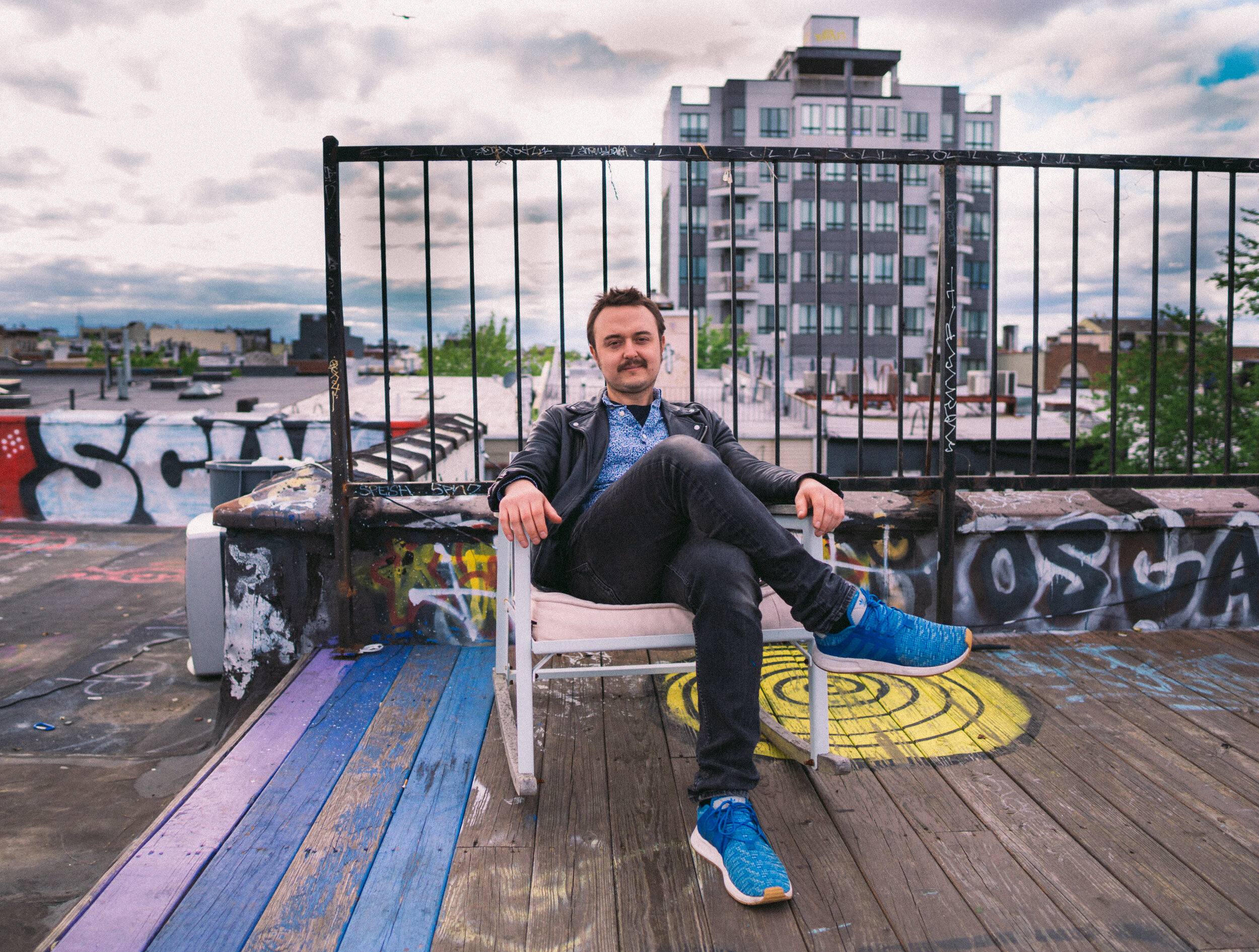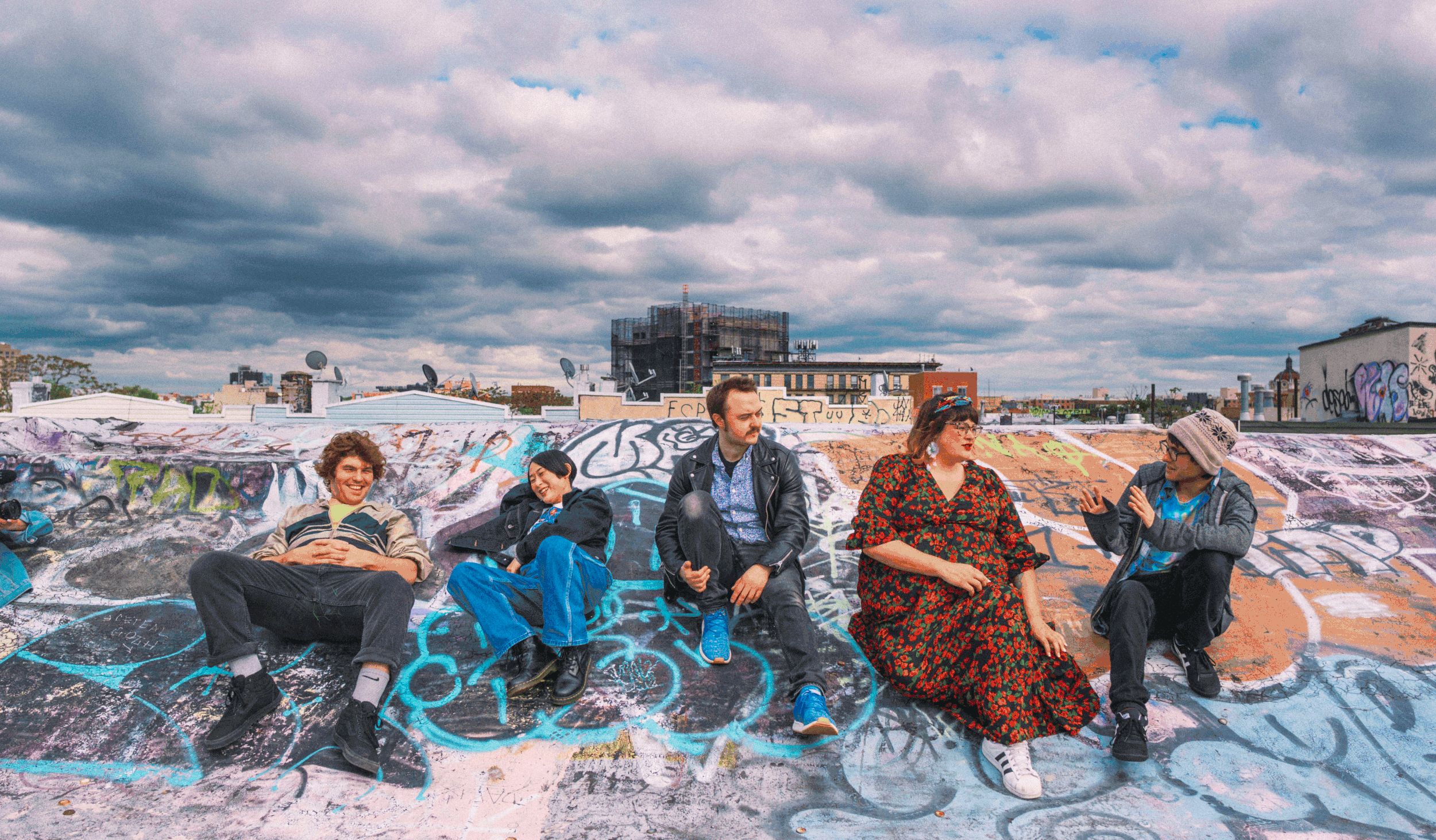Q/A With Ayumi and the Spacemen
In our first video interview, we get candid with the experimental and improvisational musical group, The Spacemen, as they prepare for their first album release.
Nebula The Velvet Queen
“We had a show at Starr Bar in Brooklyn. So we had a line up there and Ayumi got that gig, so that's how it was Ayumi and The Spacemen.
Because also well one of my big inspirations is cosmic jazz and the universe, and I think it sounds very celestial and kind of like cosmic jazz, but updated for our generations.” - Nebula The Velvet Queen
Q: How has creating this album meant for you personally?
A: So this is the first album that I really recorded properly with Ayumi and it's amazing. We've done a lot of performances and live shows and things, but to have something actually on tape that's been really beautifully orchestrated by her, it means a lot to me.
Q: Can you describe the instrument you played to people?
A: Yes, so it's called the Theremin and basically it works by electromagnetic waves and you don't touch it. You have to bring your hands close to the antenna and that changes the pitch on the one hand. On the other hand is the volume and then you just kind of play.
Q: What are memorable moments for you in making this album?
A: I think it was when we went to the hotel, yes, when we went to the abandoned hotel because of covid. There was an artist living there who was recording, so we got to go in there, record a video and then he showed us this rooftop. It was like right in the middle of Manhattan and you could see all of the Empire State Building and everything. It really was magical, so yeah, that was probably my highlight.
Q: What does an artist mean to you personally?
A: It's difficult, isn't it, because I didn't identify as an artist for a really long time, and it was like a specific day where I was like today, I'm going to identify from now on. So it became kind of who I was. But I also feel like if you're someone who just likes doing art, then you're an artist. I don't think it has to be gatekept you have to be like “I'm an artist”, but really anything creative that you’re doing then you're an artist.
Q: What changed that you finally decided I’m going to identify as an artist?
A: My mum died. And I realized how short our time is here.
Q: What have been some of the difficulties in being an artist?
A: Well, obviously the pandemic, so all our shows got shut down. We've been trying to do rooftop shows and things like that, so the scene still carried on, but that was really hard. I haven't seen some of my friends or musicians for a long time. It's hard to just in general be an artist. You don't really get paid for your work, and even now, like musicians, you can stream Spotify and we won't get any of the money, so it's really difficult to make a living.
Theo Woodward
“Yeah, it's a way to document sort of what we've been playing together and we've developed this sort of style together and we wanted to put it together in a cohesive way, and share it with the world.” - Theo Woodward
Q: In terms of a memorable moment when working on this album, can you give me one?
A: The recording session was absolutely amazing. We went to this studio called The Bunker in Brooklyn, which had enormous high ceilings and amazing wooden walls. Each one of us was isolated in these different rooms to keep the sound clean.
It was a great studio session, 'cause I've been in a few studio sessions before, never to record improvised music. In this session, I could sort of do whatever I want, and I wasn’t stressing like whether I know the parts, or if I got the things right, or if everything is set up perfectly, or worrying that we forgot to hit record, and all that which happens all the time. Yeah, it was just a great session. The sound was great. When we rehearsed, we didn't go in with any sort of plans or anything. We just kind of, started with silence, and then whoever sort of comes in we sort of buildup on that and layer on top of each other and everyone is kind of listening to each other.
It's like going on a journey kind of together and everyone sort of contributing to the narrative. Sometimes somebody will speed things up or make things louder or bring things into quieter spaces.
It's like pushing and pulling to find a groove or find a place where we want to stay for a while or something. It was just an amazing session.
Q: What do you learn personally as an artist yourself working with this group?
A: As with all improvisational sessions or ensembles, it's a matter of feeling where everybody is sort of in the mix and sort of who’s at the forefront. Who is at the background? Who is going to lay down some of background harmony? Who's going to solo? Who’s going to almost create a song or create a composition spontaneously? So every time, I've been with them I've increased my ear sensitivity and listening skills. A lot of improvisation, especially with free stuff, and with larger ensembles is about knowing when to leave space for other people and to sort of comp like in jazz, like harmonizing with what people are doing, and sort of reinforcing someone’s solo or someone’s sound.
Q: For first time listeners out there, why should they give this album a listen?
A: I think it's something that most people haven't got into before or haven't heard before. It's improvised music, but it's almost song like as well. It has sort of internal compositions to it and it's not what people typically think of free jazz where we're also using like electronics and sort of elements of ambient music and electronic music that can blend in and out of these sometimes-chaotic moments or more abstract and free parts. There are many parts with rhythm and sort of groove which a lot of free jazz doesn't have too much of. So, it's sort of in between like a jam band and free jazz where we can go into abstract areas, and also sort of more structured moments and more playing with idioms like drum and bass music and ambient music.
Q: What does music mean to you?
A: I think of music as another form of communication. There's an old quote saying that “Where words stop, music continues”, and I feel like it's a deep conversation that you can't really sum up in words. We all sort of internally understand that, going to an amazing concert or something, it brings up, complex emotions within you and it's different for each person and it brings you on a journey and allows you to experience these sorts of complex emotions. It allows the composer or the musicians to communicate something to the to the listener that goes beyond words.
Q: How has music change your life?
A: It's certainly given me a sort of purpose and a framework to be creative within. Just like I said, allowing that sort of deeper communication between people. I feel like I can communicate better through sound and through my music than through speaking. It's a more direct way to get to somebody emotions.
Ayumi Ishito
“Yeah, I think, it's just so much fun. Before I played music, I didn't have anything I wanted to do in my life.” - Ayumi Ishito
Q: What's it like as a solo artist to come and play with the Spacemen?
A: I just can trust those people. I don't have to pressure myself to play well or anything. I just can collaborate with them very naturally.
Q: What makes it easier to trust and play with the Spacemen as oppose to other the experiences you’ve had?
A: They all have open-minded and chill personalities and they are very good at listening to others. Whatever I played, they made it sound good.
Q: What is the best piece of advice that someone gave to you?
A: "You don't have to know everything you play. If you don't know what it is, leave it as mystery and start from there" by Chris Cheek
Q: What is a memorable moment when creating this album?
A: I felt so much joy when I was in the studio with them. They are so great and so much fun. We played three long sessions, for like 50 minutes each, and the moment was just amazing.
Q: What makes the same album stand out compared to all the other music out there?
A: It's hard to say. I think it's very unique because no one tried to control anything. Everything came up freely and naturally, and so many things were just happening. Yeah, some moments really pop I think, and sometimes it gets quite experimental like noise music. So it has a lot of character in it I think.
Q: What does an artist mean to yourself?
A: To me, an artist is just being honest and being yourself. I don't want to be afraid of showing the real me to the world.
JAKE STRAUSS
“I feel like it would be fun to open up for one of those casino like residency artists in Las Vegas.” - Jake Strauss
Q: Give me a memorable moment playing with the Spacemen.
A: I mean, a very memorable one was a recording at the bunker. I mean, it was definitely the best kind of recording quality I've had the privilege to play within in a very long time.
I mean it's a great group because the improvisation is very memorable, but like hard to exactly define. It's very nebulous, yet like grounded, It's just always a pleasure.
Q: What were some of the lessons you’ve learned when recording this album as a new band?
A: Upon recording, I wouldn’t say I felt more confident or comfortableness because that needs to be inherently there when you improvise well. I don’t know, it was a very good recording session. I feel like I’m use to being in these very chaotic musical environments where it's like, well, two of the band members might come or not. We might have the place book but we're not totally sure. There's often a bunch of crap you have to like wade through, and it was like a sharing to play amongst a group of people where it was very just like chill yet like professional, but not professional in a dumb way, or like a poopy way, or an annoying way, or like an actual professional way. There's good professional and there's dumb professional that's annoying that everyone hates with no one wants to admit.
Q: Why should people give this album a listen?
A: I feel like more people are kind of gravitating more towards either a, not playing out at all or doing things, or b, just becoming this kind of meme of like what they were doing, or kind of going with the new musical like kind of like trends. So I feel this music is just music that exists on its own and in a lot of ways, I think it's very kind of neutral, but that's the beauty of it. Because I feel like most music is ultimately very agenda driven.
I only enjoy playing in musical environments that are very open ended, not off the rails. It’s a grounded open-endedness and I think (this album) is the perfect listen for someone who’s into that.
Q: What does happiness mean to you?
A: Happiness is there when it’s true; it’s to sit comfortably with the sad moments.
Steven Bartishev
“I think if you make some time to give it a shot, I think most people would find it to be quite a journey.” - Steven Bartishev
Q: Tell me about your experience playing with the Spacemen?
A: My experience playing with the spacemen has been welcoming and encouraging. I was brought in by Ayumi. I played with her in another band and I'm kind of shy as well. So you know, I was worried, I'd feel kind of like the new guy, but they are very nice and great musicians, so it's been good.
Q: What is a memorable moment in making this album?
A: Well, the actual the actual recording felt pretty surreal, just because it was such a late night. And it was at a studio I've never been to. It kind of felt like a sleepover pajama party kind of vibe. And I think that's like a good mindset 'cause for the kind of music that we make 'cause it's kind of like when the magic and your imagination, at least for me, the nighttime, it really goes off.
Other than that, we played at this hotel that was also kind of surreal and magical and kind of felt like I was in like a David Lynch movie or something.
Q: Tell me something that people wouldn’t know when making this album?
A: I think some people wouldn't know that it's completely improvised, because some people have heard his play and thought otherwise. And I feel like I couldn't break it to them that. this is free improvisational music.
Q: As a band, how do you guys improvise? What do you guys need to do to be all In Sync?
A: Uh, yeah, how do you it? It's a heavy concept, really, I mean. You have to be a keen listener and at least for me, there's a balance of taking the stage, but also leaving room for everyone else.
I mean, it really is akin to having a conversation or hanging out with a bunch of people. You don't wanna be overbearing. You don't wanna slink away into the corner. You wanna build the energy feed off each other's energy, finish each other sandwiches. Finish each other sentences you know, stuff like that.
Q: What did the creation of this album mean to you personally?
A: Personally, creating this album was an opportunity for me to just kind of play on this level with a bunch of new people. I kind of feel like even though I've been in New York my whole life and I've been a musician since I was a teenager, I feel like I'm kind of living under a rock and like I don't know anyone in the scene. So I feel like this was like an opportunity to join in some of the scene, and you know everyone in the group seems to know a lot of the same people, so I'm like, alright, this is a chance for me to level up.
“It's good to have haters and it's good to have lovers.” - Jake Strauss
https://577records.bandcamp.com/album/ayumi-ishito-the-spacemen-vol-1 (Link to album)
@ayumimimi33 (Ayumi Ishito)
@nebula_thevelvetqueen (Nebula TheVelvet Queen)
@theo.woodward (Theo Woodward)
@gene_baker_llc ( Jake Strauss)
@partyshev (Steven Bartishev)
What’s your story?


